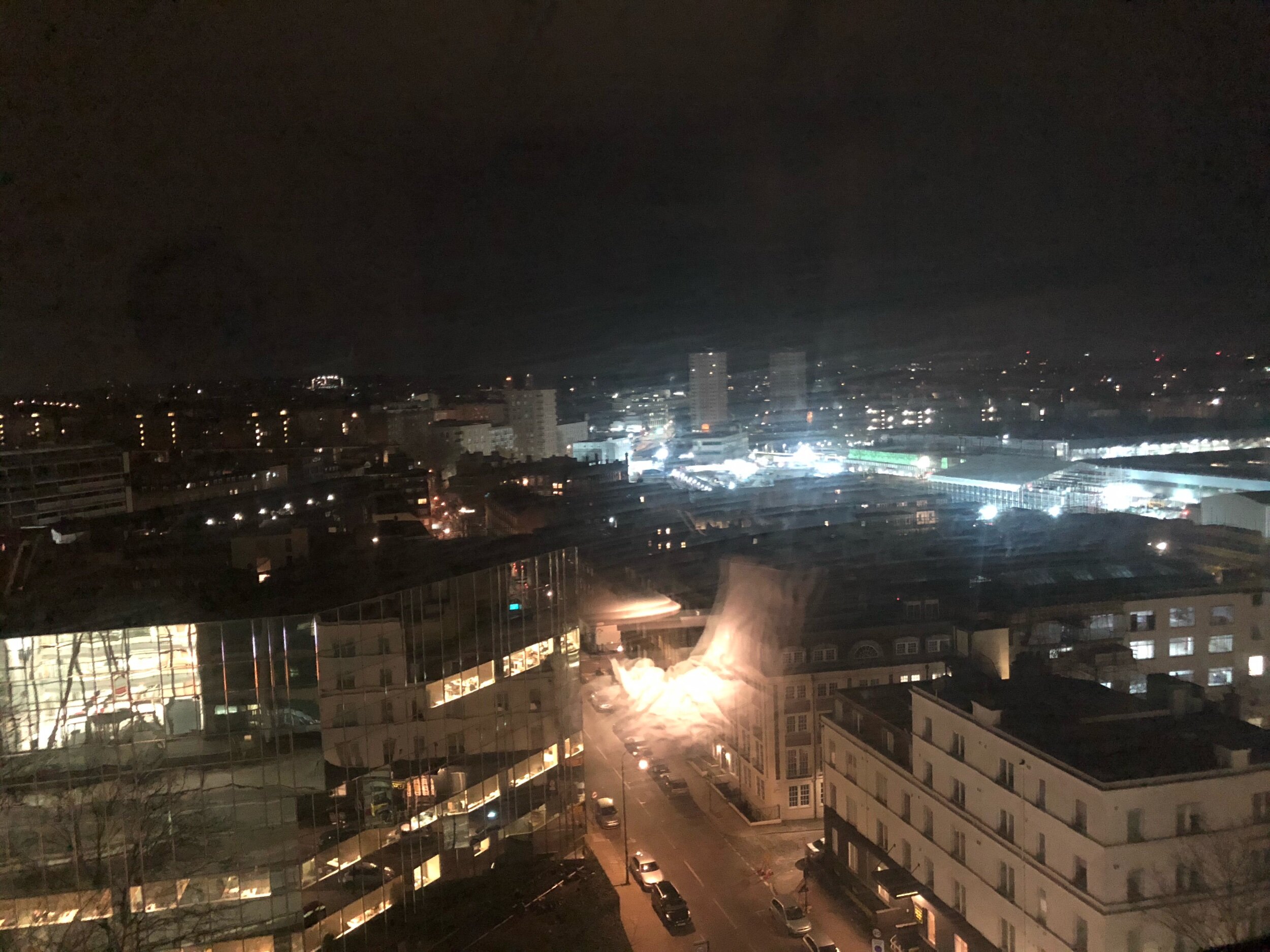Better light
A few people have come here directly from the hospital. Not a single specific hospital, of course, it will be any hospital where the end of the ward finishes out of sight, in that quiet darkness. Or they may have been alone in a corner room, awake and exhausted.
They come still with short breath, or with kidney pain, and we escort them or carry them, in a kind of floating holding method, towards the central communal meeting area. At the heart of the central communal meeting area is a long, cool building with sweet low ceilings and gorgeous windows. There is ample room for anyone who comes here still in pain from before.
One of the new arrivals recently was called Sean (not his real name). First thing he said was his eyes ache like Hell. They had ached since he left. He explained to me that it was like the lights were not getting enough power at his end of the ward. The bulbs felt heavy, he said. Slow and thick. There was a sort of pressure on the light, you see, and it pressed on his eyes. As though there was a problem with the power exchange locally, and also a problem with the pressure in the air.
Figures who came to him at his bedside spoke in deep, granular voices. They seemed concerned about him, but were unable to stay. He heard them speaking, low, goopy diagnoses. He made no sense at all of their attentions.
Alone at night, the weight of the slow light became worse and worse until he forced himself out of the bed, and walked towards the truer darkness, away from the sturdy corridor of slippers and monitors. He moved towards the unseen limit of the ward, where the boundary had become vague and a cool air promised that the pressure would lift.
As he moved through the limits, the light rolled from his mind like syrup. He felt the air soften and go dark, he heard feathers – light movements, like an owl turning, glancing and lifting again. He made his way quietly through the mist. He was not taunted by the figures, but silently allowed to pass on until he emerged in the village, still aching, in need of help.
I led him, while he spoke, through the long central communal meeting area building, not towards a bed, but a fine arm chair in a pool of isolated air. The chair was positioned facing a high window through which came the scent of pines and a swift warm breeze. I gave him some tea. I gave him a cold hat to wear, made of thick soft cotton, soaked in fresh water to ease the pressure on his eyes.
He continued explaining that he missed his family a great deal. They would not know why he left the ward the way he did. The hospital people too, who were kind people, would be confused. But his family, yes that was bad. He explained that they would struggle without him, without his contributions of labour, and kindness and maybe teaching, and yet all of these things he had also accepted. You cannot return from the village.
Still, he would have loved to have had one last time with them. To experience them coming into a room while he was dozing, and wake him with an embrace and the questions of how are you feeling and shall we go for a walk then?
We sat in silence for a short time after this. Yes, he confirmed at length, I would have liked that.
I suggested that he might enjoy coming to see me for a cup of tea one day soon. I explained about the ladder I have set up in the garden, where we can say frivolous things and hope we become lighter for it, and the hole I had dug which feels like you are being incubated in an egg if you lie in it. We talked about the possibility of flight. Sean only really committed to having a cup of tea.
He said he was not sure about heights. He remembers a window, long ago, a window where he stood looking down at the night and feeling a long, enduring surge of loneliness
